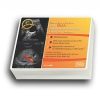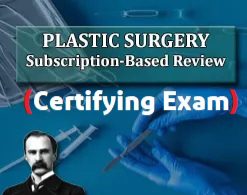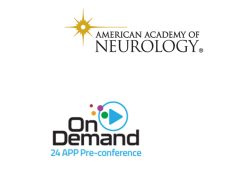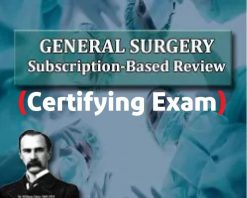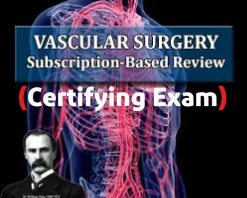The 8th Joint ACTRIMS-ECTRIMS Meeting 2020 (Videos)
$50
The 8th Joint ACTRIMS-ECTRIMS Meeting 2020 (Videos)
44 MP4 Video files
YOU WILL GET THE COURSE VIA LIFETIME DOWNLOAD LINK (FAST SPEED) AFTER PAYMENT
The 8th Joint ACTRIMS-ECTRIMS Meeting
The 8th Joint ACTRIMS-ECTRIMS Meeting, the largest international conference focused on Multiple Sclerosis (MS) research, was held in a virtual format from September 11-13, 2020, with a special encore session featuring Late-Breaking News and a COVID-19 Session on September 26.
Every three years, ACTRIMS and ECTRIMS organize a joint meeting to encourage knowledge exchange and bring together professionals from around the world.
Given the worldwide impact of COVID-19, the 8th Joint ACTRIMS-ECTRIMS Meeting took place virtually. View all scientific sessions, e-posters and teaching courses from MSVirtual2020.
At this virtual conference – MSVirtual2020 – world class scientists, neurologists, clinicians and researchers from around the world presented the latest research, clinical trial outcomes and technology and diagnostic advances in multiple sclerosis (MS).
Key topics included:
- Cutting-edge research into the cause of MS, ranging from epigenetics and genetic factors, to defining the intricate immunological and pathological pathways that inform drug discovery and therapeutic interventions.
- Radiological advances and machine learning approaches and how these techniques can help us better understand MS.
- Biomarkers of disease activity and response to therapy, which is critical for the future of personalized medicine in MS.
- The outcomes of recent clinical trials of new agents and interventions, innovations in symptomatic and rehabilitative therapy, and current research on MS and COVID-19.
Learning & Program Objectives
The themes for this conference, designed by the MSVirtual2020 Scientific Program Committee are clinical, pathogenesis, translational, and environmental/genetic factors and were derived from past attendee input and emerging studies and literature.
MSVirtual2020 key areas for education:
- Therapeutic strategies for suppressing disease activity and disability accumulation in individuals with radiologically isolated syndrome, relapsing-remitting MS and progressive MS
- Efficacy of current disease-modifying therapies across clinical subsets of individuals with MS
- Role of innate immune cells in pathogenic and reparative pathways in MS
- Relationship between the gut, microbiome, and disease activity in individuals with MS
- Advances in imaging and visual system parameters in the diagnosis, prognosis and monitoring of individuals with MS
- Integration of information on environmental, lifestyle, age-related, and genetic/ epigenetic factors in MS risk and clinical course
- Use of machine learning approaches in predicting MS risk and clinical course
Sessions included:
- BD01 – DMTs prevent-slow down cognitive impairment in MS
- BD02 – DMTs should be trialed in individuals with PPMS and SPMS with or without recent disease activity
- BD03 – Microglia are protective in MS
- CS01 – European Charcot Foundation Symposium; How to enhance remyelination in MS
- FC01 – Free Communication 1
- FC02 – Free Communication 2
- FC03 – Free Communication 3
- FC04 – Free Communication 4
- HT01 – Hot Topic 1- Strategies to promote remyelination
- HT02 – Hot Topic 2- Aging and MS
- HT03 – Hot Topic 3- Developments in pediatric MS
- HT04 – Hot Topic 4- Grey matter pathology
- HT05 – Hot Topic 5- Lymphoid follicles and meningeal involvement in MS
- HT06 – Hot Topic 6- Global perspectives on NMOSD
- HT07 – Hot Topic 7- MOG mediated disease
- LB01 – Late Breaking News
- MTE01 – CNS in disorders in children
- MTE02 – Neuro-ophthalmology of MS
- MTE03 – B-cell-directed therapy in MS
- MTE04 – Choosing the right MS disease therapy for individual patients
- MTE05 – Immune disorders of the CNS other than MS
- NS01 – Nurses’ Session 1- Advanced nursing activities
- NS02 – Nurses’ Session 2- Unique contributions of MS nursing
- PL01 – Plenary Session 1- Welcome and Paty Lecture
- PL02 – Plenary Session 2- ACTRIMS-ECTRIMS Lecture and Closing
- PS01 – Strategies for disease modification
- PS02 – Innate immunity in MS pathology and repair
- PS03 – Biomarkers
- PS04 – Impact of the environment and lifestyle and MS risk and clinical course
- PS05 – Pharmacological management of progressive MS
- PS06 – Lymphocyte subsets in MS
- PS07 – Radiological advances I (NAIMS-MAGNIMS)
- PS08 – Epigenetics and genetic factors
- PS09 – Personalized approaches to MS
- PS10 – Gut-CNS axis and the microbiome in MS
- PS11 – Radiological advances II
- PS12 – Sex-related factors in pathogenesis and management
- PS13 – Innovations in symptomatic and rehabilitative therapy
- PS14 – The impact of MS on neurons and glia
- PS15 – Visual outcome measures in MS (IMSVISUAL)
- PS16 – Machine learning approaches
- SS02 – Special Session- COVID-19
- YI01 – Young Investigators 1
- YI02 – Young Investigators 2
| Vendor |
|---|
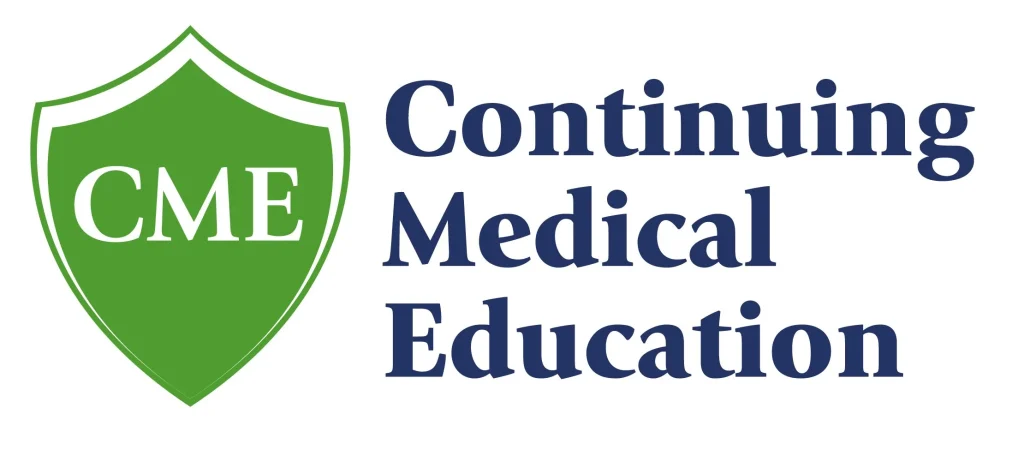
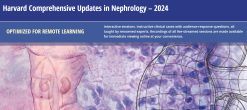 Harvard Comprehensive Updates in Nephrology 2024
Harvard Comprehensive Updates in Nephrology 2024 